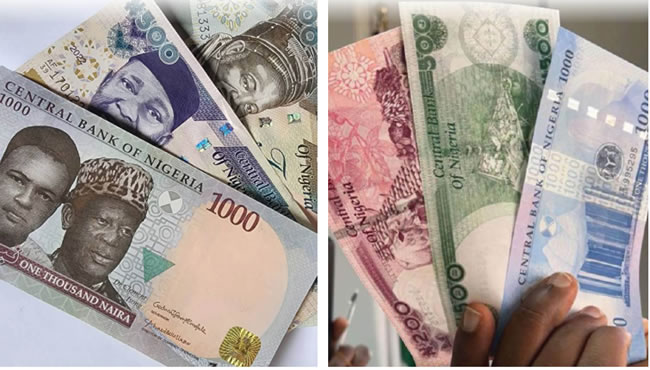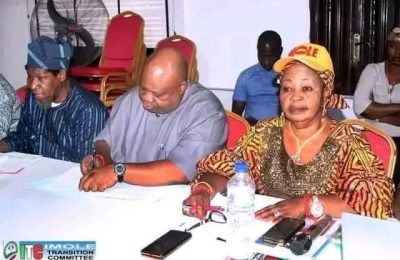

TAKING indulgence under the proviso of defective 1999 Constitution that says security and welfare of the people are primary responsibility of governance, it is not out of place to stand disturbed by the abysmal living standard of citizens of the world resident in the geographical space called Nigeria, and to wit, the syntax of deregulation becomes mindful as the plausible pathology that plagues her contemporary economy. It is empirical that sectors where perfect competition is amiss, the best bet for people-friendly policy is to regulate costs of procuring goods and services. Take for instance, the exchange policy that is subjected to forces of demand and supply, where oftentimes, demand outstrips supply, thus rendering the hard currencies to bastardly abash the local currency, resultantly making only the highest bidders to avail from Euro, Dollar, and Pound Sterling, that are in short supply. These propitious bidders end up transferring cost of procurement to grunting consumers. Why the grunt? Consumption of products alone excruciates their paltry income, no residue for investment and savings for the rainy days, all of which are sine qua non to sustain man and his nuclear family. It is no gainsaying that the so-called highest bidders, particularly some major manufacturers, had struggled year-in, year-out, to at least, break-even, if they cannot record profit, but their efforts often resulted to naught, hence they folded up, while few conglomerates in their midst relocated offshore, a development exacerbated by non-existential ease of doing business, in addition to high cost of obtaining forex used in procuring raw materials, equipment, tools, machineries, lubricants, essential expatriates, and gasoline to energise the power-generating plants. Meanwhile, the purpose of devaluation by fiat in 1987, of course, was to palpably discourage importation of all manners of goods; that consumers should patronize home-made products, but observably, the purpose fluffed. In matter of fact, the concerned authority then was myopic, oblivious of the simple fact that Nigeria’s economy is a dollar-driven economy, inasmuch as there is virtually nothing her terrestrial inhabitants consumes, from green vegetables, completely-knocked-down (CKD) vehicles, to apparels, that has no dollar input; and when the average income of these consumers is juxtaposed with forex rate, a sharp disparity is noticed between the minimum wage of N30’000/month, when converted to Dollar. Readers! It is less than $40/month, which is a gross infraction of the minimum of $100/day the UN recommends for a single soul to survive. The scenario paints a flurry of absurdity that leads the people to make-do with disused products, including sanitary towels and panties from diaspora States, especially the West. So, what purpose, then, has official devaluation served? What it served, convincingly, is to sumptuously, covetously, boosts the balance sheet of banks; and lines the pockets of their promoters and executive directors. Nowadays, banks are declaring billions of Naira quarterly as profit before tax at the expense of unsuspecting stakeholders in the macro-economy of Nigerian genre. Inquiring further, which managerial economic literature captures a conditionality to devalue a nation’s currency before loan could be granted by financial institutions or credit clubs? None. Unequivocally, the 1986 prescription by IMF in order to get its loan requested by the administration of IBB was ultra vires and wicked; succinctly, it puts the nation on several steps backward. Having said this, drastic revaluation is a necessity at this crucial period when people are, without prejudice, and dehyperbolisely, eating junks; and eating from hand to mouth, occasioned by a spiral and upwardly-chequered forex rate.
Dispatching from the above cacophonies to grind an axe with the banker-in-chief of Nigeria, the apex bank governor, it is suggestive the sitting administration prevail on him to review and consider the following elixirs that would sync the idiosyncrasies in living standard viz: (1) Abolish the Foreign Exchange Market (FEM) which this write-up preferably tagged as ‘econodemic’. Since its inception, it is remarkably discarroting to the generality, while a few bank opportunists are smiling. (2) Drastically revalue the Naira (3). If revaluation flies, peg the rate at $1/N1, or at worst, $1/N50. (4) If the radical revaluation is taken, there should be a drastic (drastic underscored), corresponding downward crash to nictitate the trending drab in consumer price index (cpi). It therefore behooves on government to reintroduce the price control board unit in the Federal Ministry of Trade, Industries and Investment in order to enforce the anticipated crash, the essence for which revaluation is meant to serve. (5) CBN should revert back to the extant practice of selling forex through banks at monetary policy rate (MPR) approved by the monetary policy committee (MPC), while banks collect administrative and other charges thereupon. (6) CBN must ban forex trading on the streets (7) The apex bank owes it a duty to efficiently and effectively put exchange traffickers in check. (8) EFCC must arrest rent seekers selling hard currencies, as such practice warps both monetary policy and financial regulation. Why should people from a section of the country sell currencies to earn their living and government looks the other side; a practice that corroborates the sobriquet of George Orwell that ‘all animals are equal, but some are more equal than the others’. Selective law in Nigeria that calls her unity to question. This proclivity astounds financial pundits, also seeing government officials, too, patronizing the black market. What an opprobrium! (9) With the prism of forensic investigation, CBN should detect banks selling forex to black marketers and place sanction on such banks. (10) Banks should primarily give preference to manufacturers in forex allocation, before giving consideration to others.

Implementation of the above elixirs shall indubitably put smiles back to faces of all and sundry because prices of commodities are bound to crash…And Muhammadu Buhari would be happier for it.
- Bello, a professor of Financial Management, Pebble Hills University, Delaware, USA, is the Registrar/CEO., Chartered Institute of Church Office Management, Ikorodu, Lagos.
YOU SHOULD NOT MISS THESE HEADLINES FROM NIGERIAN TRIBUNE
PICTORIAL EXPLAINER: How To Identify Fake New Naira Notes
The Central Bank of Nigeria (CBN) has released security features to help identify fake new naira notes. According to CBN’s template, the Security features to look out for are the following…
Ondo Councils’ Workers Shut Down Assembly Over LG Autonomy
LOCAL government workers under the aegis of Nigeria Union of Local Government Employees (NULGE), Ondo, on Tuesday, stormed the State House of Assembly, threatening a showdown with the lawmakers over the signing of local government autonomy…
FG To Discontinue Cash Withdrawal From Public Accounts
The Federal Government is putting the final touches to all necessary measures to stop cash withdrawal from federal, state, and local government accounts. The Director/Chief Executive Officer of the Nigerian Financial Intelligence Unit (NFIU), Modibbo Hamman Tukur, revealed…
Reps Probe Crude Oil Sales Over $2.4bn Revenue Loss
The House of Representatives on Tuesday unveiled plans to investigate the allegation bothering on the alleged loss of over $2.4 billion in revenue accruing from the illegal sale of 48 million barrels of crude oil export from 2014 till date…
Emefiele/DSS Tango: Falana Asks Judiciary To Treat Civil Liberty Cases Equally
LEADING rights lawyer, Mr. Femi Falana, on Tuesday addressed the controversial move by the nation’s secret police to arrest and detain the embattled Governor of the Central Bank of Nigeria (CBN), Godwin Emefiele…
As a follow-up to its redesign of the N200, N500, and N1000 banknotes, the Central Bank of Nigeria (CBN) recently announced a new policy that mandates deposit money banks and other financial institutions to ensure that…








